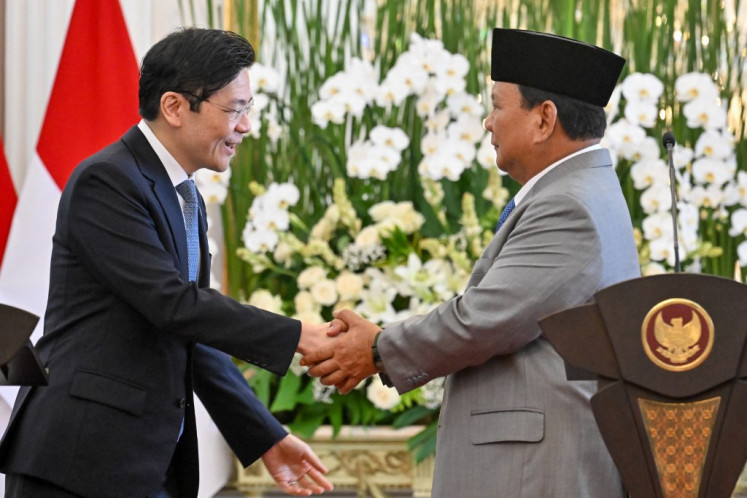Your letters: China to breed Nepalese rhinos
Recently, China and Nepal have been negotiating to move two pairs of one-horned rhinos from Nepal to China for a breeding program
Change text size
Gift Premium Articles
to Anyone

R
ecently, China and Nepal have been negotiating to move two pairs of one-horned rhinos from Nepal to China for a breeding program. This is indeed good news for global wildlife conservation. The one-horned rhino once had a much broader distribution, including the subcontinent from the Himalayan foothills to the plains of northern and northeastern India, southern China and parts of Southeast Asia.
However, indiscriminate poaching for the prized horns has pushed the endangered species toward extinction. Currently found only in Nepal and India, it is highly appreciated that China another habitat for this species by developing a captive breeding population with rhino breeding stocks from Nepal.
Breeding pairs from India will further add to the genetic diversity of the initial starting population of the rhino breeding program in China.
However, if Nepal could arrange some joint management of her international borders both with China and India, the trafficking of wildlife and wildlife products and poaching could be controlled significantly.
Last but not least, China with its practice of traditional Chinese medicine has transformed into one of the largest black markets for wildlife products in the entire world.
It is time for the Chinese government to curb the unscientific use of rare and highly endangered wildlife species and their products for traditional medical treatment. Even most wildlife products from the continent of Africa find their way to the Chinese market.
Unless China takes strong action in restricting such wildlife trade within its boundaries, true conservation efforts for wildlife across South and Southeast Asia are a distant dream.
Saikat Kumar Basu
Lethbridge, Canada









